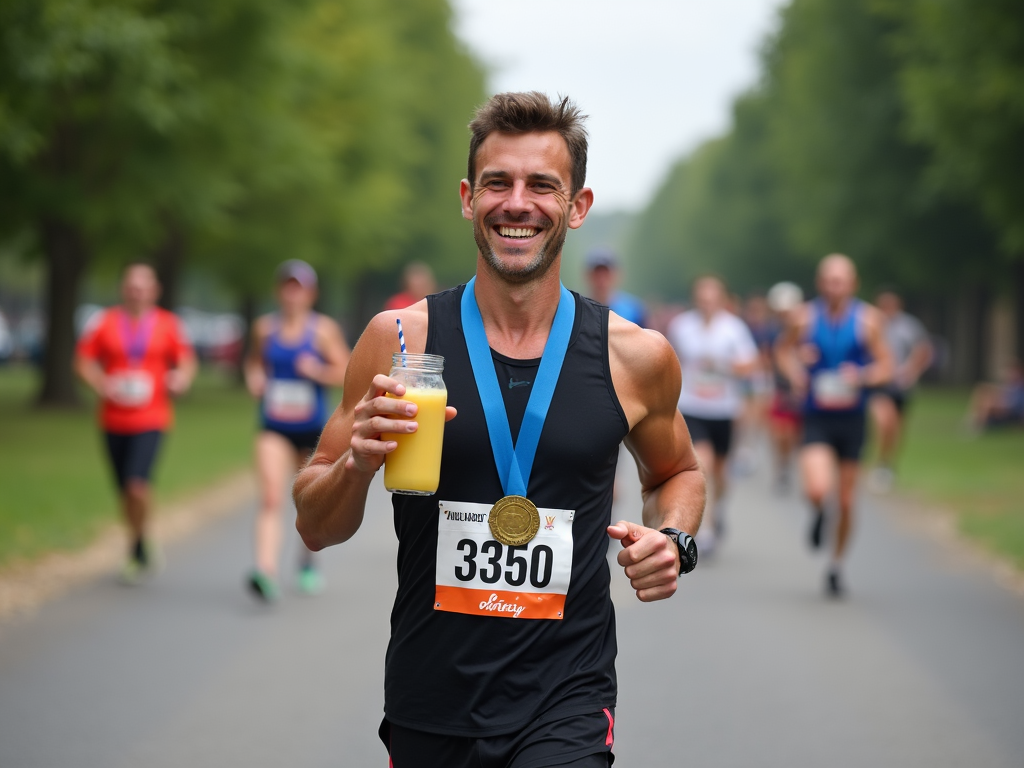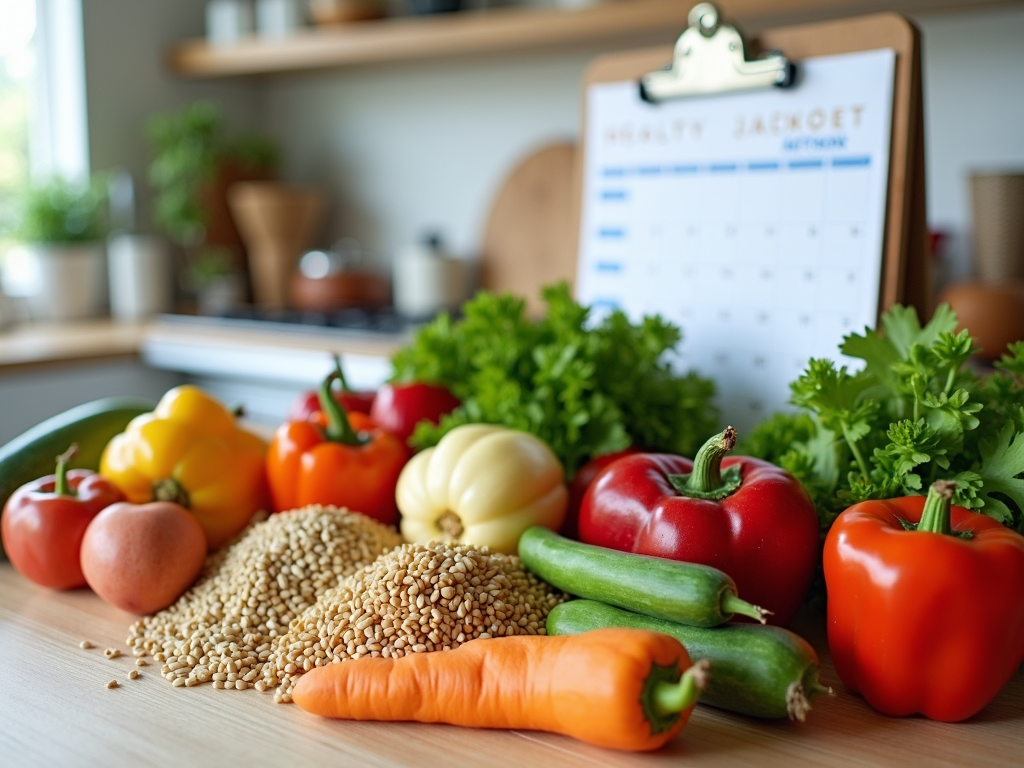Running a 5K race is a fantastic way to challenge yourself, stay fit, and even bond with your family. Whether you're a seasoned runner or just starting out, proper nutrition plays a crucial role in your performance and overall well-being. In this article, we'll explore essential nutrition tips for 5K runners, including what to eat before, during, and after the race. We'll also discuss how to incorporate family fun runs into your routine and promote family fitness and wellness. Get ready to fuel your body for success and make the most out of your running journey!
Understanding the Basics of Nutrition for Runners
Before we dive into specific tips, it's important to understand the basic nutritional needs of runners. Running, especially for longer distances like a 5K, requires energy, and that energy comes from the food you eat. The three main macronutrients—carbohydrates, proteins, and fats—each play a vital role in fueling your runs and aiding recovery.
-
Carbohydrates: These are your body's primary source of energy. They are stored as glycogen in your muscles and liver, and during a run, your body taps into these stores. Eating enough carbs ensures you have the energy to power through your race.
-
Proteins: Proteins are essential for muscle repair and growth. After a run, your muscles need protein to recover and rebuild stronger.
-
Fats: While not the primary energy source for short runs like a 5K, fats are important for overall health and can provide sustained energy for longer activities.
Balancing these macronutrients in your diet is key to optimal performance. Additionally, staying hydrated is crucial, as even mild dehydration can impair your running ability.
Pre-Race Nutrition: Fueling Up for Success
What you eat before a 5K race can significantly impact your performance. The goal is to consume a meal that provides enough energy without causing digestive discomfort during the run.
-
Timing: Aim to eat your pre-race meal 2-3 hours before the start time. This allows your body to digest the food and convert it into usable energy.
-
What to Eat: Focus on easily digestible carbohydrates with a small amount of protein and minimal fat. Some good options include:
-
Oatmeal with banana and a drizzle of honey
- Whole grain toast with peanut butter and sliced apple
-
Yogurt with granola and berries
-
Hydration: Drink water throughout the day leading up to the race. About an hour before the start, have a small glass of water to top off your hydration levels.
Avoid heavy, greasy, or high-fiber foods that could upset your stomach. Also, steer clear of trying new foods or supplements on race day to prevent any unexpected reactions.

During the Race: Staying Energized
For a 5K race, which typically lasts between 20 to 40 minutes for most runners, you might not need to consume anything during the run. However, if you're running at a slower pace or feel the need for a quick energy boost, consider the following:
-
Water: If the race provides water stations, take small sips to stay hydrated, especially on hot days.
-
Energy Gels or Chews: These are optional and more commonly used in longer races. If you choose to use them, opt for ones you've tested during training to avoid stomach issues.
Remember, the key is to listen to your body. If you feel fine without consuming anything, that's perfectly okay.
Post-Race Nutrition: Recovery and Replenishment
After crossing the finish line, your focus should shift to recovery. Proper post-race nutrition helps replenish glycogen stores, repair muscle tissue, and rehydrate your body.
-
Timing: Aim to eat a recovery meal or snack within 30-60 minutes after the race.
-
What to Eat: Include a combination of carbohydrates and protein. Some examples are:
-
A smoothie with banana, spinach, protein powder, and almond milk
- A turkey and cheese sandwich on whole grain bread
-
Greek yogurt with honey and mixed nuts
-
Hydration: Continue drinking water to replace fluids lost through sweat. If you've sweated a lot, consider a sports drink to replenish electrolytes.
Don't forget to celebrate your achievement! Enjoying a well-deserved treat can be part of your post-race ritual, but try to balance it with nutritious choices.

Nutrition for Family Fun Runs
Running a 5K as a family can be a wonderful way to promote family fitness and wellness. When preparing for a family fun run, consider the nutritional needs of all participants, especially children.
-
Kid-Friendly Pre-Race Snacks: Opt for simple, familiar foods that kids enjoy and that provide energy. Examples include:
-
Apple slices with peanut butter
- Cheese sticks and whole grain crackers
-
Mini bagels with cream cheese
-
Hydration for the Whole Family: Encourage everyone to drink water before, during, and after the run. For younger children, consider flavored water or diluted juice to make hydration more appealing.
-
Post-Run Family Meal: Plan a nutritious and fun meal to enjoy together after the race. This could be a picnic with sandwiches, fruit, and veggies, or a homemade pizza with whole wheat crust and plenty of toppings.
Involving the whole family in meal planning and preparation can make nutrition a fun and educational experience for everyone.

Long-Term Nutrition Strategies for Runners
While race day nutrition is important, your overall diet plays a significant role in your running performance and health. Here are some long-term nutrition strategies to consider:
-
Balanced Diet: Ensure your daily meals include a variety of fruits, vegetables, whole grains, lean proteins, and healthy fats.
-
Meal Planning: Plan your meals and snacks ahead of time to avoid last-minute unhealthy choices. This is especially helpful for busy families.
-
Snacking Smart: Choose nutrient-dense snacks like nuts, yogurt, or fruit instead of processed foods.
-
Listening to Your Body: Pay attention to hunger and fullness cues. Eating when you're hungry and stopping when you're satisfied can help maintain a healthy weight and energy levels.
-
Experimenting with Foods: Find what works best for you. Every runner is different, so it might take some trial and error to discover your ideal nutrition plan.

Common Nutrition Mistakes to Avoid
Even with the best intentions, runners can make nutrition mistakes that hinder their performance. Here are some common pitfalls and how to avoid them:
-
Overeating Before a Run: Consuming too much food before a run can lead to discomfort and sluggishness. Stick to moderate portions.
-
Neglecting Hydration: Dehydration can sneak up on you. Make a habit of drinking water throughout the day, not just before or after runs.
-
Relying on Supplements: While supplements can be helpful, they shouldn't replace whole foods. Focus on getting nutrients from a varied diet.
-
Ignoring Recovery Nutrition: Skipping post-run meals can delay recovery and leave you feeling fatigued. Always have a recovery snack or meal planned.
-
Following Fad Diets: Extreme diets can deprive your body of essential nutrients. Opt for a balanced, sustainable eating plan instead.

Proper nutrition is a cornerstone of successful 5K running, whether you're racing solo or with your family. By understanding your body's needs and fueling it with the right foods at the right times, you can enhance your performance, recover faster, and enjoy the journey. Remember to stay hydrated, listen to your body, and make nutrition a fun and inclusive part of your family's fitness routine.
Discuss Here